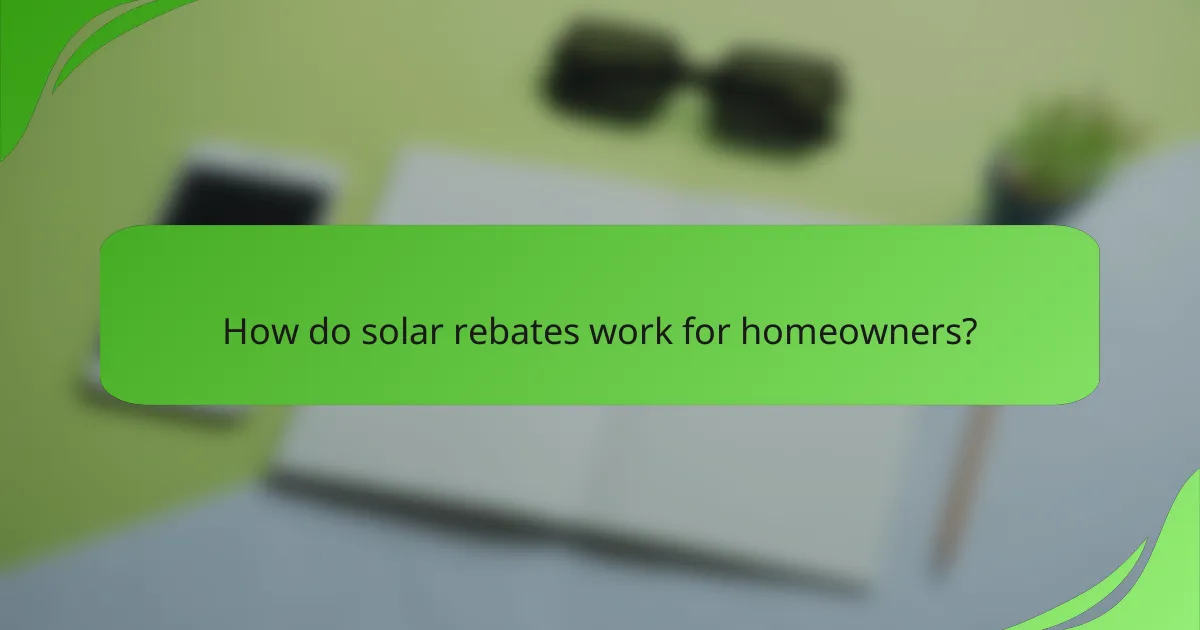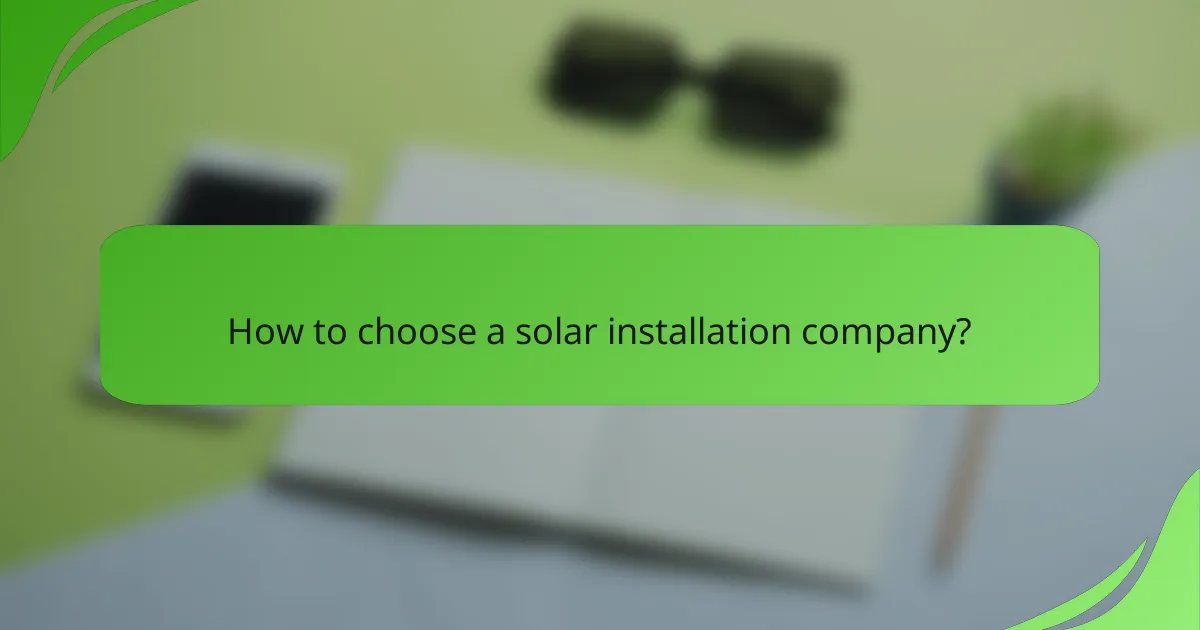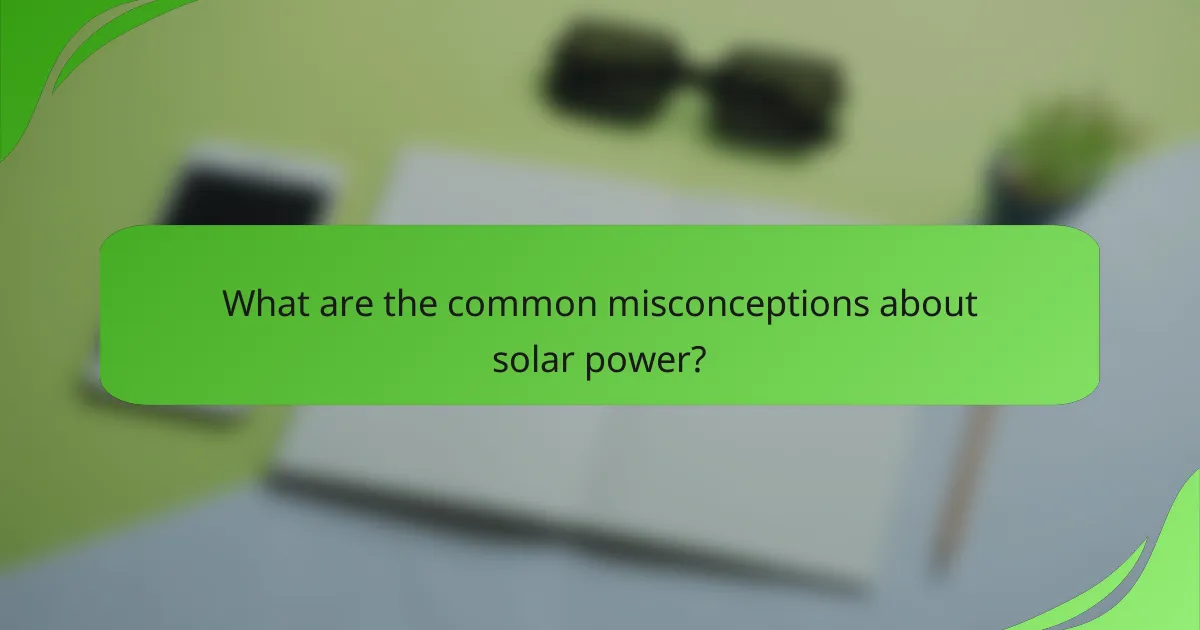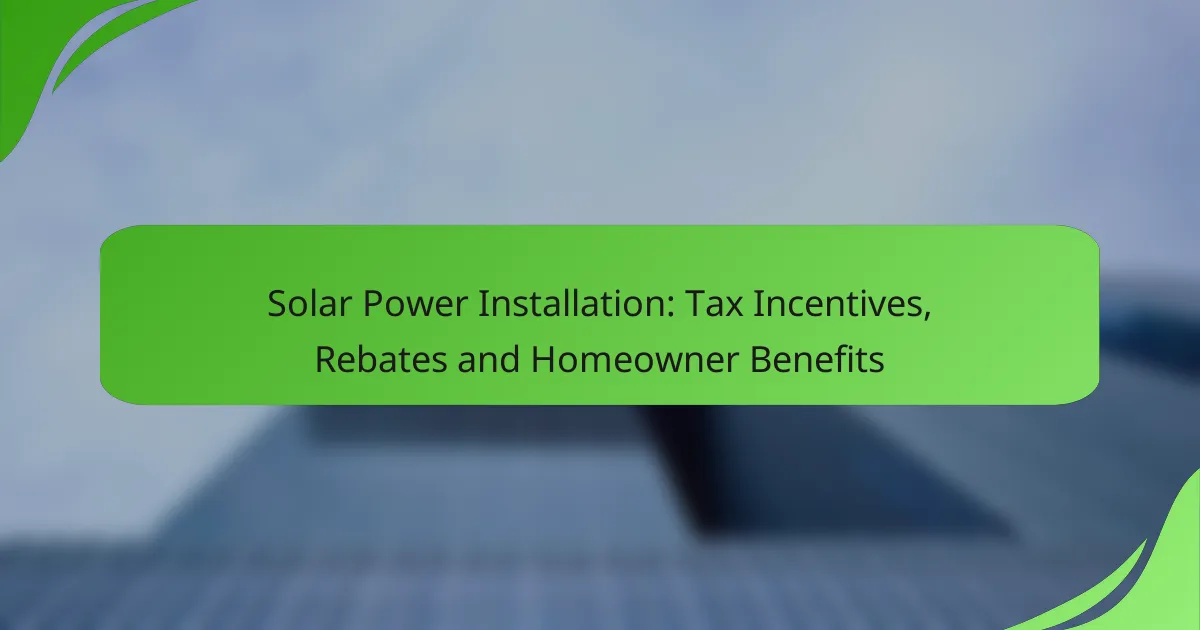Homeowners in the United States can take advantage of various tax incentives and rebates for solar power installation, making renewable energy more accessible and affordable. These financial incentives, including federal tax credits and local utility rebates, significantly lower the upfront costs associated with solar energy systems. By investing in solar power, homeowners not only reduce their energy bills but also enhance their property value, creating long-term financial benefits.

What tax incentives are available for solar power installation in the United States?
Homeowners in the United States can benefit from various tax incentives for solar power installation, significantly reducing the upfront costs. These incentives include federal tax credits, state-specific credits, and local utility rebates, all designed to encourage the adoption of renewable energy sources.
Federal Solar Investment Tax Credit (ITC)
The Federal Solar Investment Tax Credit (ITC) allows homeowners to deduct a substantial percentage of the cost of solar panel installation from their federal taxes. As of 2023, this percentage is set at 30%, which can lead to significant savings for those who qualify.
To take advantage of the ITC, homeowners must ensure that their solar system is installed and operational by the end of the tax year in which they claim the credit. It’s advisable to consult a tax professional to navigate the specifics and maximize benefits.
State-specific tax credits
Many states offer additional tax credits for solar power installation, which can vary widely in terms of percentage and eligibility. For example, states like California and New York provide incentives that can further reduce the overall cost of solar systems.
Homeowners should research their state’s specific programs, as some may have caps on the total amount of credit available or require applications through state energy offices. Keeping abreast of changing legislation is crucial to ensure you receive all possible benefits.
Local utility rebates
Local utility companies often provide rebates to encourage solar energy adoption. These rebates can range from a few hundred to several thousand dollars, depending on the utility and the size of the solar installation.
To qualify for these rebates, homeowners typically need to meet certain criteria, such as using approved solar equipment or completing the installation by a specific deadline. Checking with your local utility provider for current offerings and application processes is essential for maximizing savings.

How do solar rebates work for homeowners?
Solar rebates for homeowners provide financial incentives to reduce the upfront costs of installing solar energy systems. These rebates can significantly lower the overall investment required, making solar power more accessible and affordable.
Types of solar rebates
There are generally two main types of solar rebates available to homeowners: federal and state or local rebates. Federal rebates, such as the Investment Tax Credit (ITC), allow homeowners to deduct a percentage of the installation costs from their federal taxes. State or local rebates vary widely and may include direct cash incentives or tax credits based on the system’s capacity and performance.
Additionally, some utility companies offer rebates for solar installations to encourage renewable energy use. These utility rebates can be a flat amount or based on the energy produced by the solar system over time.
Eligibility criteria for rebates
Eligibility for solar rebates typically depends on several factors, including the type of solar system installed, the homeowner’s location, and the installation date. Most programs require that the system meets specific performance standards and is installed by a certified professional.
Homeowners should also check if their property qualifies for local incentives, as some programs may have restrictions based on the size of the system or the type of residence. It’s advisable to consult local regulations and utility providers to ensure compliance and maximize potential benefits.

What are the financial benefits of installing solar power?
Installing solar power can lead to significant financial benefits, including reduced energy costs and potential tax incentives. Homeowners can save money on their utility bills while also increasing their property value through solar energy systems.
Long-term savings on energy bills
One of the primary financial benefits of solar power is the long-term savings on energy bills. By generating your own electricity, you can significantly reduce or even eliminate your monthly utility expenses. Many homeowners report savings of 50% or more on their energy bills after installing solar panels.
Additionally, solar energy systems can provide protection against rising energy prices. Once your solar installation is paid off, your energy costs can remain stable, while traditional utility rates may continue to increase. This stability can be particularly beneficial in areas with high electricity rates.
Increased home value
Installing solar panels can enhance your home’s value, making it more attractive to potential buyers. Studies have shown that homes with solar energy systems often sell for a premium compared to similar homes without solar. This increase in value can range from a few thousand to tens of thousands of dollars, depending on the size and efficiency of the solar system.
Moreover, many buyers are increasingly interested in energy-efficient homes, which can lead to quicker sales. In some regions, solar installations can be a key selling point, especially in markets where energy costs are high or where renewable energy is prioritized.

What are the prerequisites for solar power installation?
Before installing solar power systems, homeowners must ensure their property meets specific requirements. Key factors include assessing roof suitability and understanding local zoning regulations that may affect installation.
Roof suitability assessment
Evaluating roof suitability is crucial for solar power installation. Homeowners should check for adequate space, structural integrity, and orientation. Ideally, roofs should be south-facing and free from shading by trees or nearby buildings to maximize sunlight exposure.
Consider the age and condition of your roof; if it requires repairs or replacement soon, it may be wise to address those issues before installing solar panels. A roof pitch of 15 to 40 degrees is generally optimal for solar efficiency.
Local zoning regulations
Local zoning regulations can significantly impact solar power installation. Homeowners must verify if their area has specific codes or restrictions regarding solar panel placement, height, and visibility. Some municipalities may require permits or have guidelines that dictate how solar systems should be integrated into the property.
It’s advisable to consult local authorities or a solar installation professional to ensure compliance with all regulations. This step can prevent potential fines or the need to remove improperly installed systems later on.

How to choose a solar installation company?
Choosing a solar installation company involves evaluating their experience, customer feedback, and service offerings. Prioritize companies with a strong track record and transparent practices to ensure a successful solar project.
Reputation and reviews
Reputation is crucial when selecting a solar installation company. Look for companies with positive customer reviews on platforms like Google, Yelp, or specialized solar review sites. A solid reputation often indicates reliability and quality of service.
Consider checking for industry certifications and affiliations, such as the North American Board of Certified Energy Practitioners (NABCEP). These credentials can provide additional assurance of the company’s expertise and commitment to best practices.
Warranty and service options
Warranties and service options are essential factors in your decision-making process. A reputable solar installation company should offer comprehensive warranties on both the equipment and the installation work, typically ranging from 10 to 25 years.
Inquire about the company’s maintenance services and support after installation. Some companies provide monitoring services to track system performance, while others may offer regular maintenance checks. Understanding these options can help you avoid unexpected costs and ensure your solar system operates efficiently over time.

What are the common misconceptions about solar power?
Many people believe that solar power is too expensive and complicated to install, or that it requires constant maintenance. In reality, solar energy systems can offer significant savings over time and are designed to be low-maintenance.
Cost vs. savings
A common misconception is that the initial cost of solar power installation is prohibitively high. While upfront expenses can range from several thousand to tens of thousands of dollars, many homeowners find that federal and state tax incentives, along with local rebates, significantly reduce these costs. Over time, savings on electricity bills can lead to a return on investment within a few years.
For example, in the United States, homeowners can often expect to save anywhere from 20% to 50% on their energy bills after installing solar panels. Additionally, many states offer net metering programs that allow homeowners to sell excess energy back to the grid, further enhancing savings.
Maintenance requirements
Another misconception is that solar power systems require extensive maintenance. In reality, solar panels are designed to be durable and typically require minimal upkeep. Most systems only need occasional cleaning and an annual inspection to ensure everything is functioning properly.
Homeowners should check for debris or dirt on the panels and clear them as needed, especially in areas with heavy dust or pollen. Additionally, monitoring the system’s performance can help identify any issues early, ensuring optimal efficiency without significant time investment.
